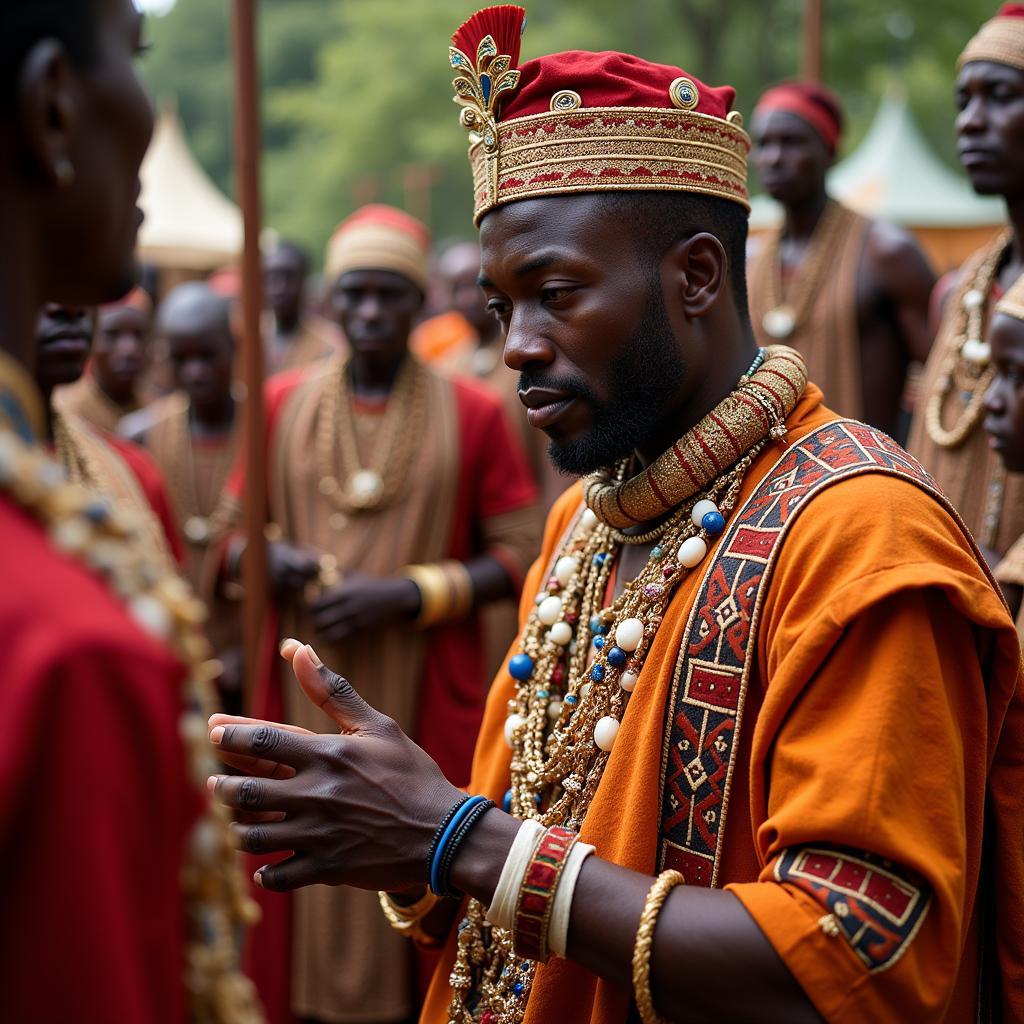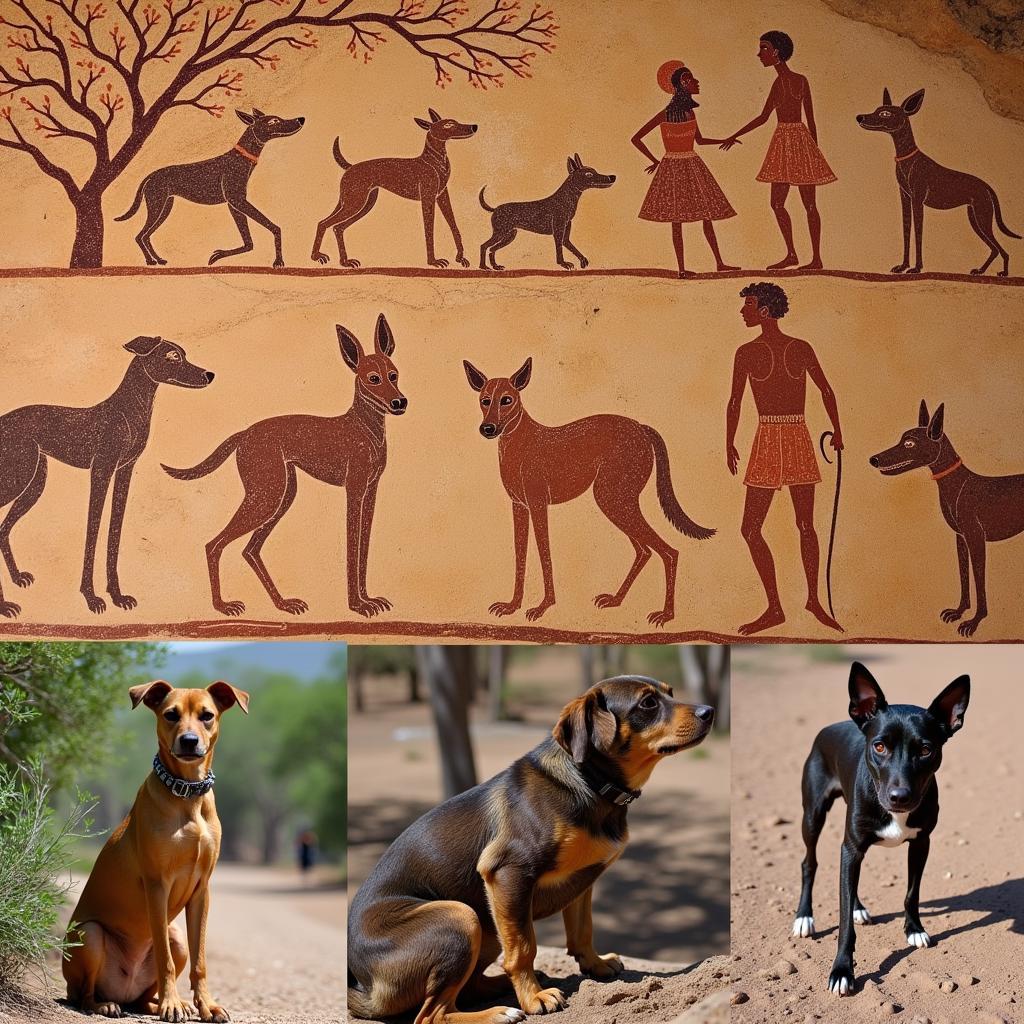The Vital Role of African Chiefs in a Village
African chiefs in a village hold a position of significant authority and responsibility. They are more than just figureheads; they are the backbone of their communities, playing a crucial role in maintaining social order, resolving disputes, and preserving cultural traditions. This article delves into the multifaceted world of African chiefs, exploring their historical significance, contemporary roles, and the challenges they face in a rapidly changing world.
Understanding the History of African Chiefs
The chieftaincy in Africa has a rich and complex history, varying significantly across different regions and ethnic groups. In some societies, chiefs inherited their positions through lineage, while in others, leadership was earned through merit and demonstrated ability. Historically, African chiefs held considerable power, often acting as both political and spiritual leaders. They were responsible for enacting laws, administering justice, and leading their people in times of war and peace. african chief were often seen as intermediaries between the human world and the spiritual realm, playing a crucial role in religious ceremonies and rituals.
The Modern Role of African Chiefs in a Village
While the powers of African chiefs have diminished in many areas due to modern governance structures, they continue to hold a significant influence within their communities. They serve as custodians of culture and tradition, ensuring the continuity of customs, values, and beliefs. African chiefs play a vital role in resolving local disputes, often acting as mediators and peacemakers. They are respected figures whose wisdom and experience are sought after in matters of conflict resolution.
Challenges Faced by African Chiefs in a Changing World
Modernization and globalization pose significant challenges to the traditional role of African chiefs. The influence of western culture, urbanization, and the rise of modern political systems have led to a decline in the authority of some chiefs. However, many African chiefs are adapting to these changes, embracing new roles and responsibilities while striving to preserve the core values of their traditions. They are increasingly involved in community development projects, advocating for the needs of their people, and working to bridge the gap between traditional customs and modern realities.
How Do Chiefs Maintain Their Authority?
Many chiefs maintain their authority through their deep connection to the community and their understanding of local customs and traditions. They are often seen as the voice of their people, advocating for their rights and interests.
What is the Significance of Traditional Attire for African Chiefs?
The traditional attire worn by african chief is often symbolic of their status and authority. It serves as a visual reminder of their connection to their ancestors and their cultural heritage.
 African Chief Participating in a Traditional Ceremony
African Chief Participating in a Traditional Ceremony
Conclusion
African chiefs in a village remain vital figures in their communities, playing a crucial role in preserving cultural heritage, resolving disputes, and advocating for their people. Though the challenges of modernization are significant, many chiefs are adapting to these changes, finding new ways to serve their communities while upholding the values and traditions that define their leadership. Understanding the role of African chiefs is essential to appreciating the rich cultural tapestry of the African continent.
FAQ
- What is the typical role of an African chief in modern society?
- How do chiefs contribute to conflict resolution in their villages?
- How are chiefs chosen in different African communities?
- What are some of the challenges facing traditional leadership in Africa today?
- How are chiefs adapting to the influences of globalization and modernization?
- What is the significance of traditional ceremonies and rituals in maintaining the chief’s authority?
- How do chiefs contribute to the preservation of cultural heritage in their communities?
For further assistance, please contact us at Phone Number: +255768904061, Email: kaka.mag@gmail.com Or visit us at: Mbarali DC Mawindi, Kangaga, Tanzania. We have a 24/7 customer service team.
